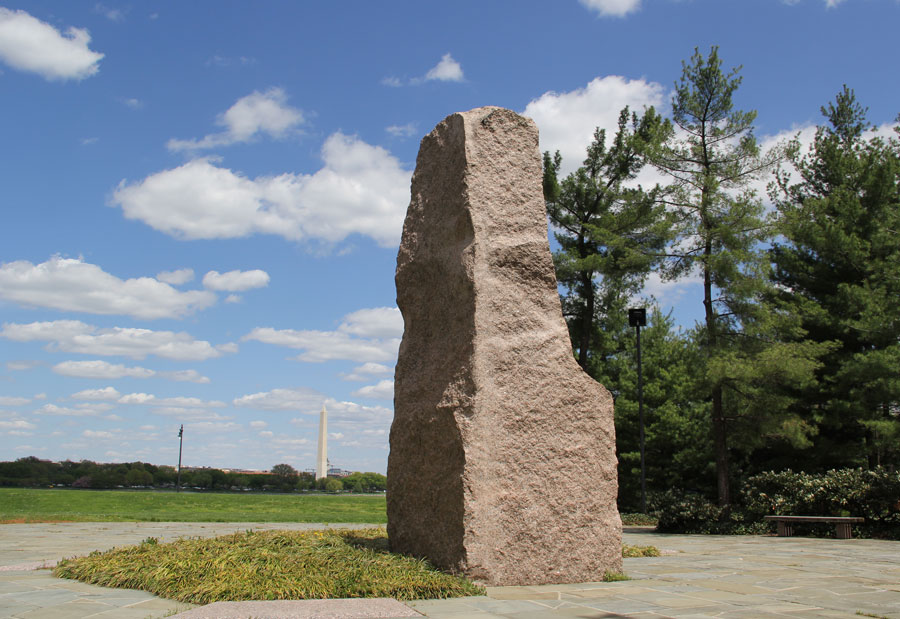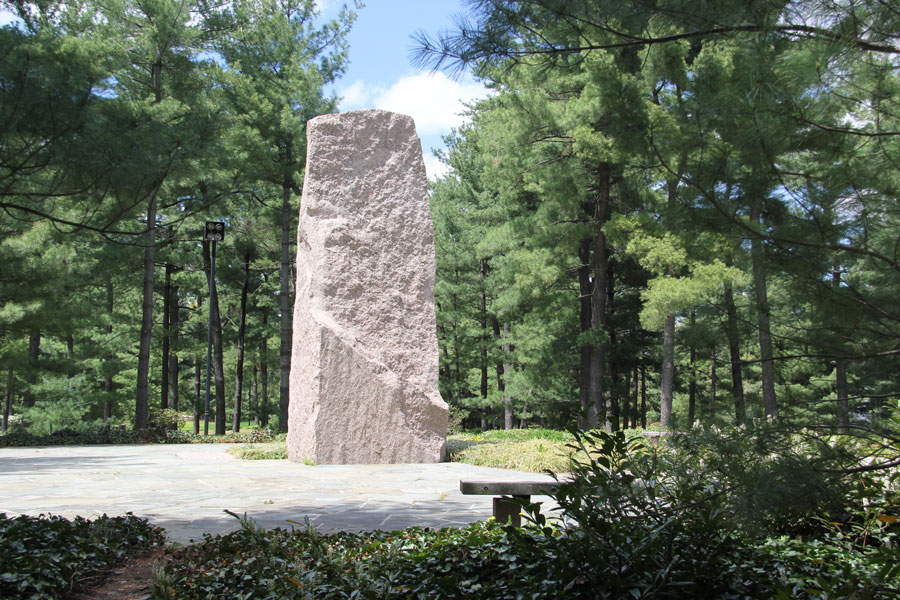
Monuments and memorial statues occupy a lot of real estate in Washington, D.C..
The more popular historical figures naturally claim pride of place along the National Mall, where millions of tourists pay homage annually. However, not all the significant players on this world stage are commemorated in stone or bronze. While there are no less than three statues of Lincoln downtown (and who doesn’t love Lincoln?), some worthy national figures don’t even rate a plaque.
Across the Potomac from the National Mall, on a small strip of land nestled between the Columbia Marina and Reagan National Airport, but still technically part of the District, the Lyndon Baines Johnson Memorial Grove offers a unique perspective on our Nation’s Capitol.
A rough granite monolith sits surrounded by a grove of white pines and dogwoods. There are a few benches and a serpentine path through the woods. There are a couple of quotes from Johnson, but they weren’t drawn from his landmark work on the Civil Rights Act, or his efforts to end poverty. They’re just a couple of simple lines about how all children should have the freedom and opportunity to enjoy the beauty of this nation. Of course, Lady Bird Johnson, who guided the creation of the memorial grove in 1974, probably selected the quotes in an effort to remind visitors that her embattled husband was, beneath his forceful and plain-speaking exterior, a sensitive man fighting for justice in a system tilted to benefit the rich.
That system is still going strong. The War on Poverty, which Johnson launched in 1964, ran out of gas well before the ’80s. But that doesn’t prove it wasn’t a good idea.
The recent riots in Baltimore, like the continuing violence in our cities nationwide, reflect the sense of hopelessness that breeds in a system which perpetuates economic injustice.
Popular television shows that portray a decayed and corrupt system of government in this country have some value. But reality is a lot harder to wrap up in one or two seasons. When the War on Poverty began in 1964, the poverty rate in the United States was 19 percent. In 2014 it was 14.5 percent. That’s some progress. But it’s hard to appreciate when your kids are hungry.
Not many tourists cross the river to spend a quiet moment staring at the big rock that symbolizes the hard-headed 36th President of the United States. Like so many of us, he was complex. People remember his crude sense of humor, his determination to win the Vietnam War. People forget that it was Johnson who created the National Endowment for the Arts.
Politicians are only human. Critics hungry for heroes might do well to try serving on the local school board before they assume it’s easy to run a country of 325 million strong-minded individuals.
Lyndon Johnson, the boy from Stonewall, Texas, was one of them.
